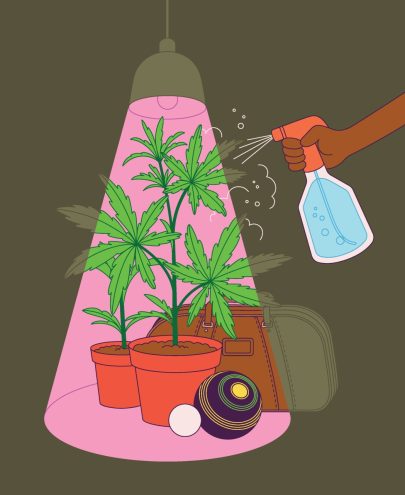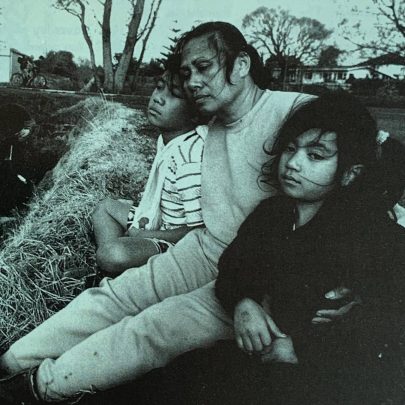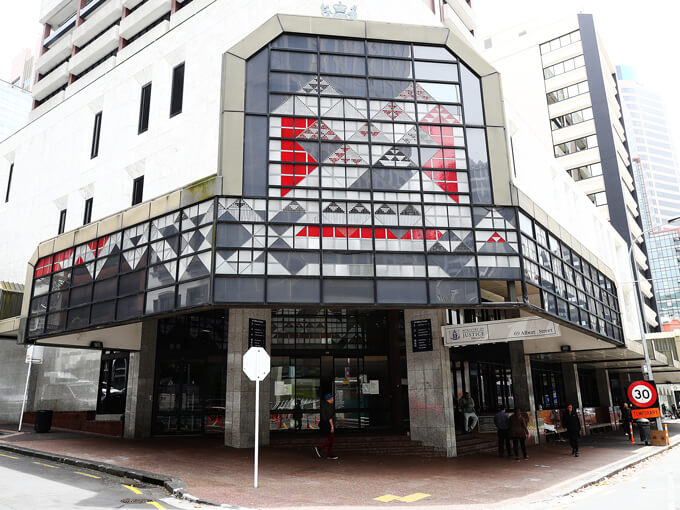Dec 20, 2013 Crime
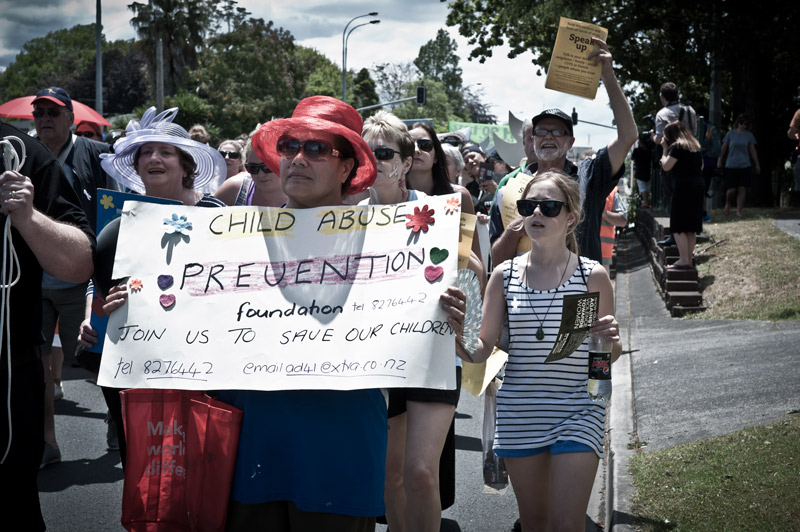
What with the Roast Busters debacle and two officers in the dock on serious charges, 2013 was a bad year for the police in west Auckland. What on earth is going on?
First published in Metro, January 2014.
A godless waiting room outside Waitakere District Court’s courtroom one on a steamy November morning. The two-year-old in the blue checked shirt bawls from his red pushchair. The little girl in the gold jandals pulls a pack of Cheezels from her turquoise backpack with the pink polka-dot owl on the front. Her mother, who looks barely beyond her teens, seems used to this routine: she has prepared a lunchbox.
Tattoos and tattered jeans, pigtails and rats’ tails, intimidating leather-jacketed bulk alongside the preschoolers their mothers tow behind them like a piece of wheeled luggage. Sometimes, it’s like a meeting place for old mates. Backs are slapped, men beam at each other as if they’re just catching up at the pub. “Good as!” they say. Before they’re summoned to the dock.
There, the private lives of these men and women whose names fill page after page on the court’s daily lists become public property.
The disqualified driver with the shaved head and bull neck who says the “missus” has brought him to court and could his bail conditions please be sorted before 2.15 because she has to start work, even if he doesn’t.
The middle-aged woman in the dark suit whose fraud has reached six figures and they’re still counting. The sweetly smiling man who agrees to take a Living Without Violence course so he doesn’t have to go back to jail. Then there’s the accused who can’t even appear because he’s been injured during his arrest and is having surgery.
A kilometre up the road, in the carpark of Waitakere Hospital in Lincoln Rd, hundreds of locals are gathering for the annual White Ribbon Day march to protest at violence against women. The by-now-infamous predations of the self-described Roast Busters gang gives today’s event a particular resonance, but this is a crowd that’s long been converted to the cause, judging by the white ribbon face paint, the placards and team T-shirts.
About a dozen uniformed cops, sweltering in blue serge, flank the perimeter as acting area commander Inspector Jill Rogers outlines the extent of family violence in the district. Since January, she says, police have attended 4214 incidents — 13 calls a day — nearly all involving violence by “intimate partners”.
“We are encouraging staff to take the pledge: ‘We will not commit, condone or remain silent about violence towards women.’”
Although police always attend this event, today’s highly visible presence carries the whiff of irony. There seems more activity today than there was during the whole two years the Roast Busters were having sex with drunk, underage girls in this part of town and shaming them on Facebook. Wasn’t this violence towards women and weren’t police as good as silent about it before the media dug it up?
The marchers, with Rogers in the front row alongside Opposition leader David Cunliffe, troop past the Great North Rd office of National MPs Tau Henare and Social Development Minister Paula Bennett, who are nowhere in sight. The chanted slogans of the hundreds-strong throng, “Family Violence Is Not OK”, “Stand up, fight back”, carry in the clear air right through to Ratanui St where, inside and outside the courthouse, the mothers and children wait.
The women will probably visit the ladies bathroom on the ground floor at some stage, where they’ll find, in black vivid marker inside the door, some particularly charmless graffiti:
Fuck yo
Shit
Fake slut
Welcome to Waitakere.
Policing in West Auckland isn’t run from Henderson or anywhere in the old Waitakere City, but from Mairangi Bay, 20km away. It’s part of the Waitemata police district, a vast and socio-economically disparate region which includes the North Shore and West Auckland as far as Rodney, and also the motorway from Bombay Hills to Orewa.
Superintendent Bill Searle is in charge. He doesn’t admit it, but it must have been the toughest of his five years in the job.
In May, Henderson-based officer Peter Pakau was arrested on methamphetamine charges, accused of being part of a Head Hunters-run gang. In August, Pakau’s colleague, court escort Lotovale Perese, was charged with smuggling contraband for inmates. In November, a third Henderson-based policeman, Sergeant Brent English, was suspended after allegedly exposing himself to a female colleague at a work do.
But none of these dented public confidence in the police quite as much as the Roast Busters. After both Searle and Inspector Bruce Scott insisted police couldn’t act because none of the victims had complained, revelations that four young women had indeed gone to the police, with one laying a formal complaint two years earlier, were humiliating. More than this, the saga raised wider questions of competence, communication and culture in the district.
In 2011, when the first complaint against the Roast Busters was laid, the Waitakere branch of the Waitemata police was, by some measures, a dysfunctional place. And, with the highest ratio of crime per police officer in Auckland — 71 incidents for each, compared with 61 in Auckland City and 39 in Counties-Manukau — staff were under the hammer.
In March that year, another West Auckland cop, Sergeant Martin Folan, had gone on trial in the Auckland District Court charged with allegedly bashing five prisoners. He was acquitted. Colleagues testified both for and against him but their evidence hinted at a troubling culture in the district.
A constable who had recently transferred from North Shore told the court he saw Folan kick a prisoner in the groin, and wondered whether that was just “the way things are done in West Auckland. I was getting used to the way things were done in West Auckland, I was getting used to the change, but I remember that moment, thinking, ‘Wow.’ That went against my understanding of general police professionalism.”
In June, two other West Auckland officers, Gareth Needham and Alan Douglas, were fined after being found guilty of assaulting a teenager the year before.
In August, highly regarded area commander Detective Inspector Gary Davey stepped down after his team scored one of the worst results in the country in the annual staff engagement survey, with nearly one in three Waitakere officers regarding themselves as “not engaged” in their work.
“There was a feeling Gary was something of a sacrificial lamb at the time,” says Police Association president Greg O’Connor. “Welcome to the world of police bureaucracy. Police, like every other government organisation, have to be seen to be doing something when they come under pressure.”
 605 " height="402" />
605 " height="402" />
The year before, in 2010, Waitemata police led the country’s 12 police districts with another unwanted statistic: more complaints about their conduct were taken up by the Independent Police Conduct Authority than any other district. With 14 per cent of the national total, they were three per cent ahead of neighbouring Auckland and Counties-Manukau.
In the authority’s latest stats, Waitemata’s performance has improved, with just 10.3 per cent of complaints, behind Counties-Manukau and Wellington.
Historically, says O’Connor, the west has been the “withered arm” of Auckland in terms of staffing and resources, and he remembers attending community meetings in the 1990s where locals rallied for a fairer share. “Police on the North Shore were almost in awe of their western counterparts because they knew how damned hard it was to police out there — it’s like, how do these guys manage it?”
He’s confident that when the conduct authority reports on its inquiry into police handling of the Roast Busters issue, it will show it was far from a once-over-lightly investigation, as it has been portrayed.
“You’d get the impression that no one has given a stuff, but nothing could be further from the truth. There are always things that can be done better, but my understanding is the detectives looking after it did a pretty good job.” He says had it not been for the miscommunication over whether a complaint had been laid, “this wouldn’t have been about the police at all”.
West Auckland, he says, “is a hard town with hard problems” and, to an extent, police have to adapt to the people they serve, have to be able to speak their language. “This is true all over the world — show me the local community and I’ll show you the cops. You can’t be out of kilter with your locals. That’s not a good or a bad, it just is.”
But does that explain why police didn’t prosecute the Roast Busters for underage sex even if not for rape? It’s only part of the story. The decision has much less to do with police in West Auckland than it does with the approach of police generally to youthful sexual activity.
Youth Court prosecution figures show sex cases of any kind involving 16-year-olds or under are rare: there have been only 108 in all six Auckland courts in the past five years. Arguable consent scenarios, “date rapes” or situations such as the Roast Busters, where girls were drunk and underage, are rarer still.
Principal Youth Court Judge Andrew Becroft says he finds it hard to recall a single case in which a youth has been brought before him on a sex charge, other than when the complainant has been a step-sibling, part of the wider family, a child of family friends, or a complete stranger. When the perpetrator is part of the family, he is likely to be significantly older than the victim.
No peer-pressure rape. No party rape. No statutory rape. Given the endemic nature of underage sex, particularly drunken sex at or after parties, it seems girls either aren’t coming forward with complaints or, when they do, young offenders are being handled in other ways than by formal prosecution, despite the fact that youth sex offending in general is taken very seriously.
Police say they “fully and thoroughly investigated” the 2011 complaint, and also inquired into an incident involving Beraiah Hales, one of the self-described Roast Busters, and an underage student at Green Bay High School last year. Hales left the school around the same time. The Facebook site on which the youths posted about their antics was taken down for long periods and only recently went live again, limiting the time it was monitored.
But Tiaria Fletcher, manager of the Waves Trust, an umbrella agency for 55 groups dealing with family and sexual violence, says the trust could have done much to assist the police, through education and other programmes, if it had been given the chance. Though Waitakere area commander Steve Kehoe sits on the trust and attends many of its meetings, she says he never raised the issue or sought help. “We were really disappointed.”
“May I ask you a question?” She’s a 20-something in horn-rims and it’s midday in Henderson, near the hock shop that trades as Pawn Star.
“Sure,” I say.
“Do you have $2 for a bun?”
I hand over $2 and keep walking. She stops me again. “If you were really generous, could I get two buns?”
It seems there’s a more sophisticated class of beggar in West Auckland. And, perhaps, a different kind of crim, a different type of punter.
“Shit yeah,” says John Tamihere, the erstwhile RadioLive host currently stood down after a storm of criticism over the way he and co-host Willie Jackson handled an interview with a friend of one of the girls who claimed to have been raped by the Roast Busters.
“West Auckland has around 90 schools — 80 per cent are decile five or under. If you can escape West Auckland schools, one-third of secondary school students do; they bus away from them. That’s got to tell you something. Whether it’s fair or not, it’s just a statistical fact that tells you the socio-economic status of Westies is not of good or great heart.
“We’re often bonded with the Waitemata District Health Board, but it’s chalk and cheese. You go over to Greenhithe or the Harbour Bridge and, mate, you may as well be comparing Martians. But you know what? Out here, by and large, the majority of our youth population are bloody good kids. Most of our people, even if they’re on low incomes, are trying hard to get jobs and make a go of it.
“They’re not bullshitters. They go down to the bloody shops in their onesies. You look at them and think, shit, you can’t knock it, because they’re out there, they have their babies and the kids look well looked after… they’re all dressed by [The Warehouse founder] Stephen Tindall.”
He says since the watershed “Schollum and Shipton and Louise Nicholas cases”, police have developed a “hair trigger” response to sexual offending. “Up till that time, there were very tough questions on whether there was enough evidence to lay charges.”
Now, police err on the side of taking a potentially dubious allegation seriously rather than rejecting it. “Even if there’s a shadow of doubt, they chuck it into the system to let the system sort it out.” He says in one recent case, a young man who accidentally opened the door of a unisex toilet when a woman was inside became the subject of a sex allegation. “The police worked him over and were going to charge him.”
Criminal Bar Association president Tony Bouchier, a former detective, says the criminal clientele in the west are better informed about their rights and less deferential to the police than, say, people in Counties-Manukau.
“And the one thing that really stands out for me every time I go to Waitakere is the number of young European girls who are pregnant or pushing prams. Every time. A lot of them aren’t appearing personally but they’re there. They’re just there, waiting for their boyfriends.
“I don’t know where it comes from. Are they coming from promiscuous families, where the mums are solo mums? I don’t know. Maybe their only focus in life is being on the DPB. For me to see young girls like that who’ve got so much potential, that’s the part I can’t get my head around.”
Statistics back him up, to a degree: Henderson-Massey is home to more solo mums than any other part of Auckland save Manurewa, although the mothers of the west tend to be older on average than those in the south.
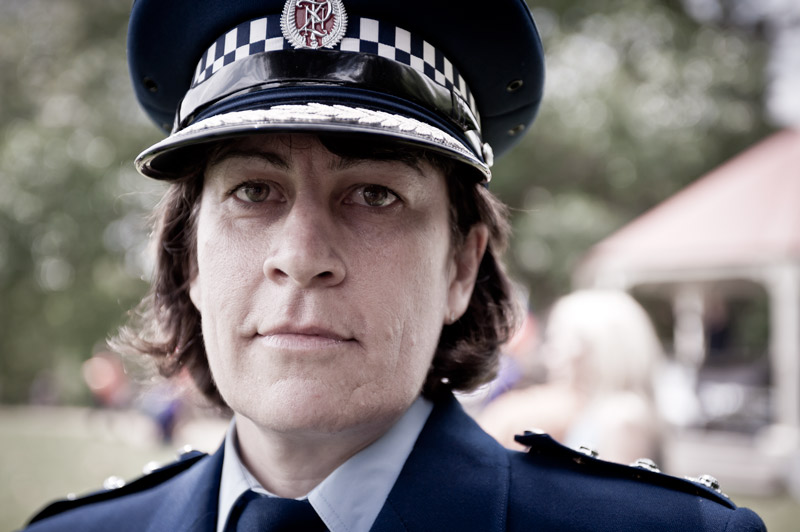
Likewise, Henderson and Massey have the highest rates of joblessness in Auckland and, with Manurewa, the highest numbers of beneficiaries of all types.
Lawyer Helen Bowen, who spends much of her time in the Waitakere Youth Court, says she’s now seeing third-generation defendants. “Their grandparents have been burglars or had a drug history. They haven’t done a good job of parenting so the parents of the youth I represent absolutely haven’t done a good job either.
“I’ve got a young woman who was raped by a couple of uncles. She’s deaf, her mother has a mental illness and her father committed suicide. I don’t know what’s going to happen for her; it’s that level of devastation these families are in.”
Paula Bennett, Waitakere’s member of Parliament, has seen that intergenerational welfare dependence among her constituents and witnessed the lack of respect with which the cops in her area are treated. She says when she accompanied the police on one overnight patrol, she was “completely shocked” by the attitudes they encountered.
“The violence didn’t stop because the police were there. I’ve heard it said, and I saw elements of this, that if police turn up to a fight or a party in South Auckland, the people either stop and put their heads down or run away. You turn up here and they throw a bottle at you.”
The Head Hunters, the gang with which Pakau was allegedly linked, “are really prevalent out here — very smart and very powerful”.
Bennett says she has raised West Auckland resourcing issues over the years and is satisfied historical imbalances have been largely corrected. She says while she can’t “put aside what’s happened with the Roast Busters”, she’s always found the local police to be professional, and deeply involved with the community and its safety.
Like Bennett, Swanson rugby coach and former youth and social worker Tom Harris, 42, doesn’t believe the Roast Busters’ awful escapades are a West Auckland problem, but rather the fallout of young men and women exposed to internet porn and a sexualised music culture.
Harris has lived in West Auckland all his life, having grown up in New Lynn and Green Bay — the areas where the Roast Busters worked their particular ill. After the publicity, he drew a group of 36 of his teenaged players aside and asked them about their attitudes to the reported behaviour.
“They saw them as really bad guys, but they didn’t view what they’d done as rape. Their perception of rape was someone being jumped in a park or an alleyway — there was a violent act attributed to it.
“They believed that girls who drank too much, were too loud and did things at a party that weren’t quite ladylike were unofficially giving consent to that type of behaviour. That’s the bit that shocked me the most. And they said some of the girls knew what they were doing. I said up until a point they did, but when the girls say no, that’s when it’s to end. When I explained that getting drunk and falling down in the garden is not a form of consent, that it’s never consent, they said, ‘Oh… okay’.”
He says at parties, the group took their moral compass from peers, not from what they might have been taught at home.
When girlfriends and relatives of the players joined his informal discussion, they told him about groups of girls who would go out intending to lose their virginity.
Former Waitakere mayor Sir Bob Harvey told Metro he tried to warn the police some years ago of the insidious sexualisation of young people through porn. “They weren’t interested. It wasn’t on their radar.”
He says he began to raise the issue after US-based ad consultant and environmentalist Cindy Gallop, founder of the company MakeLoveNotPorn, talked to him about it on a visit to Waitakere in 2010. “What she said frightened me, challenged me. I thought, ‘Oh shit’.”
While the structure of the liquor licensing trusts in the west was supposed to reduce alcohol harm, Harvey says he was always aware of a booze-fuelled “rape culture” in the area, where bach parties had got out of control.
“In areas of the west, there’s a booze culture. These are bad-ass kids, but they’re not from marginalised homes, they’re from Titirangi and Green Bay. We’re not looking at bogan kids. They have money and they have access to phones, cameras and so-called girlfriends. They are middle-class shockers.”
Bennett says she’s thought long and hard about whether the licensing trusts have contributed to the problems by forcing young people into unsupervised drinking at parties and in neighbourhood garages rather than pubs. Her conclusion: removing the trusts would only make matters worse.
Were police investigating the Roast Busters inoculated against the implications of drunken teen-on-teen sex because it is apparently endemic? Metro has asked dozens of people about this, and all have rejected the idea.
Former West Auckland barrister Rob Harrison represented Christchurch crèche worker Peter Ellis in the 1990s and has defended hundreds of men on sex charges. He says he has always found the police everywhere, including the west, to be “exactly the opposite of the way they’re being portrayed at the moment”.
“They were really on to it, all the time, even if there were aspects of a case which made it doubtful.”
Harrison says the problem of promiscuous or drunken youth sex is nationwide. “Quite apart from this Roast Busters scenario — and I’m not commenting on the complainants in that case — there is a small floating population of young girls just absolutely throwing themselves at anything with a pulse. It’s really scary. They’re selling themselves for some beers or a $20 packet of hooch.
“What you have is two conflicting mores in society. You have this liberation, and the exploration of sexuality in teenagers via sex education in schools and the media, without any corresponding responsibility to themselves and their self-respect. That sort of stuff seems to go out the window.”
The conflict was never better illustrated than in an under-age sex case a few years ago, involving a 14-year-old girl on the North Shore and three adult St John Ambulance employees. Child, Youth and Family took the view the girl should be removed from her home and allowed to continue to “explore her sexuality” with the men without the influence of her family, despite the fact that the sex they were having was statutory rape.
“The courts always say the statutory rape laws are designed to protect young women from themselves,” says Harrison. “And clearly here [in the Roast Busters case], we should also be talking about the boys — where is their self-respect and sense of social responsibility?
“They appear to define themselves by their penis rather than any form of achievement or success. What they are basically saying to the world is, ‘We have no respect for women’.”
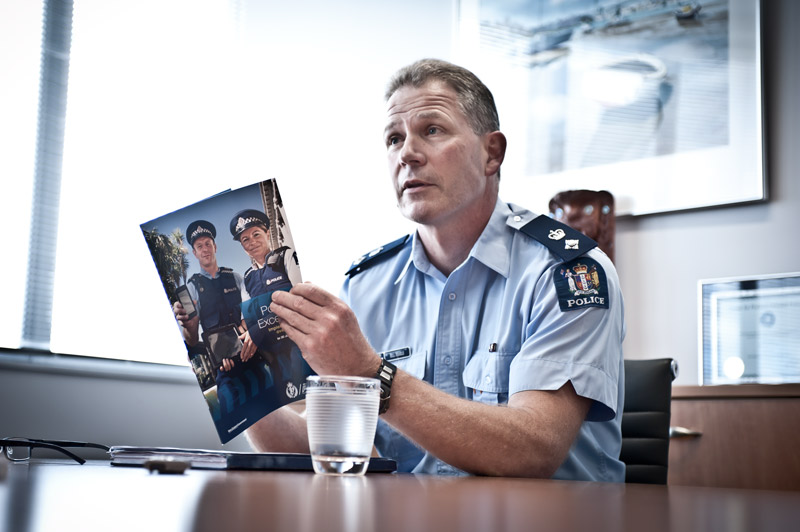
Back at Waitemata police HQ, Roast Busters is a forbidden subject as Metro begins to ask Bill Searle whether his district is dysfunctional. Before we get the question out, he runs through its achievements, headed by the fact it has the lowest per-capita crime rate in the country.
Of course, that’s rather an academic estimate as far as West Auckland is concerned — North Shore is the lowest crime area, followed by Rodney, while West Auckland figures are “average”.
But with the second-highest crime reduction last year on an already low rate — thanks to better intelligence-gathering and smarter policing, burglaries were down an astonishing 30 per cent — Searle reckons that’s a big win for the district.
More important for West Auckland are the different strategies now being used to deploy police across the district. The district has dispensed with the silo-like area “hubs” of the past — finally, officers and cars are now sent to the areas where they’re most needed.
And those areas are in the west. Waitakere, which has 55 per cent of Waitemata’s total crime, now has nearly 30 per cent more staff than the North Shore.
“I’m proud of the results we’ve got,” says Searle.
But the annual engagement survey suggests that morale in Rodney and Waitakere is the lowest in the Auckland district. Asked about “respect and integrity in the workplace”, for example, staff at district HQ gave it an 85 per cent rating, Waitakere and Rodney just 69 per cent.
Searle points out those results are improving, and the changes to the district structure should mean the improvements are sustained. While the Waitemata command centre is in Mairangi Bay, all crime files are now being case-managed in Waitakere.
The west has also now become the district’s “custody suite” — that’s police-speak meaning prisoners from all parts of the district go to Waitakere to be locked up overnight. Searle rejects any suggestion he or HQ are disconnected from the west in anything other than location.
He says the investigations into the three West Auckland officers this year, two of which have resulted in charges, are positive in that the alleged wrongdoing was reported by other officers.
“I make no apologies for holding these people to account.”
It’s true all police districts have their time in the spotlight or, more correctly, the darkness. Corrupt cop Gordon Meyer has brought Christchurch South’s station to unwanted attention, while in 2005, a former High Court judge was appointed to probe a “sick culture” in Counties-Manukau police.
Now it is the turn of the district some call “the wild west” where, these days, the crims’ insult du jour is to ask the cops which gang they’re with, what drug they’re dealing.
And when those crims are charged — often the same ones, over and over again, they’ll turn up once more outside the Waitakere District Court, where the lunchboxes will be packed for yet another day. Good as.
First published in Metro, January 2014.

